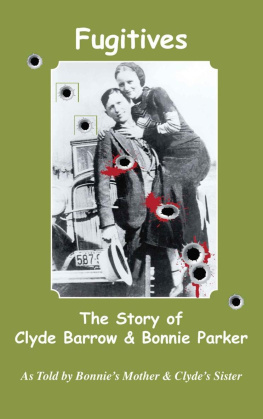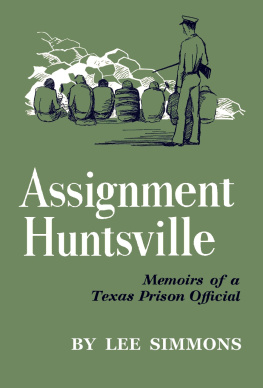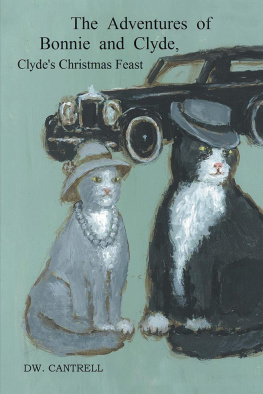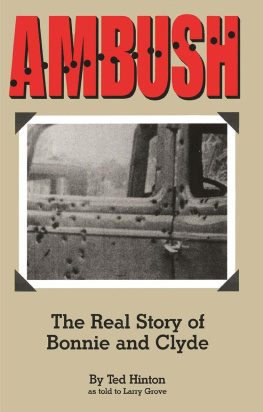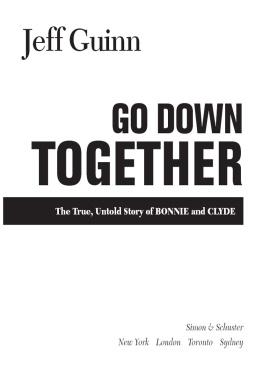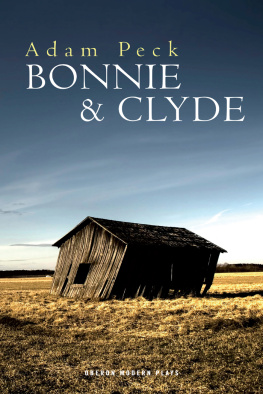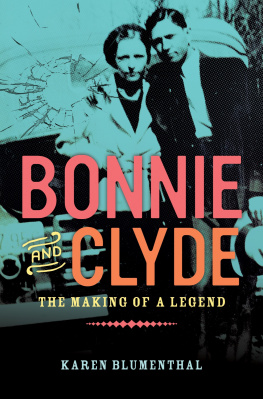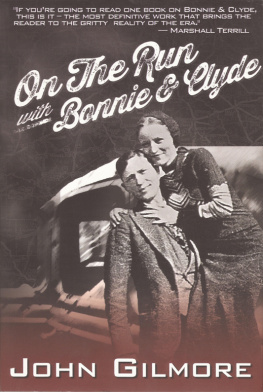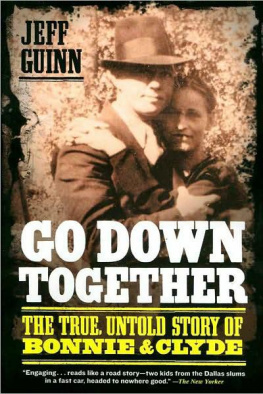Table of Contents


ISBN-10: 0977161072 ISBN-13: 978-0-9771610-7-2
New Material Copyright 2013
Wild Horse Press
All Rights Reserved
No part of this book may be reproduced in any form
or by any means without permission in writing from
Wild Horse Press.
Printed in the United States
All inquiries regarding this book should be addressed to
Wild Horse Press
4217 Arbor Gate Street Fort Worth, TX 76133
Telephone - 254-797-2629
E-mail - wildhorsepress@att.net

www.WildHorsePress.com
About the Book
Bonnie Parker and Clyde Barrow met their end May 23, 1934, but their exploits live on in dozens of books, movies and documentaries that are still produced to this day. Fugitives: The Story of Clyde Barrow and Bonnie Parker came rolling off of the presses in September of 1934, barely three months after the pair met their bloody demise.
The Barrow and Parker families fought hard against several media projects involving the telling of the Bonnie and Clyde saga. They filed a petition to stop the showing of a film produced shortly after the deaths of the criminal pair and also attempted to stop the sale of a record produced by the Southwestern Music Company and the R.C.A. Victor Company, Inc.
In their legal filings they made various claims including great mental suffering and embarrassment caused to the families and misrepresentation of Bonnie and Clyde. Yet, Bonnie's mother, Emma Parker and Clyde's sister, Nell Barrow Cowan, wasted no time in getting this book into print. Their stated desire was to tell the true story of their infamous kin, but no doubt there was a monetary goal as well.
The Ranger Press, Inc. in Dallas, Texas, was the original publisher and was a group effort with Parker and Cowan telling their stories to Jan I. Fortune, a noted poet, reporter and playwright in Dallas. In later years Fortune moved to Hollywood and worked on several movie scripts including Dark Command, starring John Wayne.
Both Clyde and especially Bonnie, were extremely close to their families. During the course of their crime spree, the pair roamed over much of the central United States, but always returned to Dallas and clandestine meetings with their families. The strain must have been tremendous on all involved since they were constantly watched by law enforcement authorities, who hoped to end the crime wave.
Several family members were arrested and tried for aiding and abetting Bonnie and Clyde. Both Bonnie's and Clyde's mothers served thirty day jail terms in 1935, almost a year after the death of the pair.
Mrs. Parker was especially protective of her son's legacy and even went as far as tearing down photos on display at a movie theater in Dallas. The Capital Theater was showing a two-reel film about Bonnie and Clyde when several women appeared and tore down posters and photos in the lobby. When the posters and photos were replaced the women again appeared, but the second time police were present and Mrs. Barrow was arrested and taken to police headquarters. After she apologized, she was released and apparently the incident was dropped.
Despite the desire to protect the memory of Bonnie and Clyde, Fugitives: The Story of Clyde Barrow and Bonnie Parker provides a first hand account and look behind the scenes of Bonnie and Clyde's crime spree. Surprisingly the book does not attempt to sugarcoat their exploits. It also helps to connect the dots as law enforcement chased the pair across the country.
Researchers are skeptical of much of the material in Fugitives: The Story of Clyde Barrow and Bonnie Parker . Many believe some names were changed to protect surviving family members, there are also instances when Mrs. Parker and Nell Cowan attempt to point blame for some of the more serious crimes at other members of the Barrow-Parker gang.
There is also a belief that Jan Fortune attempted to write a book that would appeal to readers and may have taken some jouranlistic liberties in portraying the story of Bonnie and Clyde.
However, despite these shortcomings, the book is a good read and does contain letters, diary entries and other information that might not otherwise have been made available to the public.
Foreward
There may be readers who will hesitate to open this volume, thinking that it is a vindication of Bonnie Parker and Clyde Barrow as persons who were more sinned against than sinning. Such people need have no fear. Within these pages you will find nothing to predicate such a fact. We feel that their life story, as set down here, is the greatest indictment known to modern times against a life of crime.
There is nothing in these pages which would attract any normal person to the life of an outlaw. The two years which Bonnie and Clyde spent as fugitives, hunted by officers from all over the Southwest, were the most horrible years ever spent by two young people. They were on the road constantly; they lived from hand to mouth; they never knew the happiness of safety and security; they had no home and rarely enough money.
Never for one instant did they experience a joy or a thrill which could possibly compensate them for the living hell which made up their lives. In- the last accounting, all they had left in life was each other and the pleasure of occasionally sneaking home to see their people. There never was a time, after the chase began, when they would not have traded places with the poorest and humblest couple on earth if they could have had peace and ordinary happiness.
They trusted but few fellow beings and even here as always that trust was betrayed. Bonnie and Clyde were betrayed by one they considered a friend. This was also true of Jesse James, of Cole Younger, of Pancho Villa, of John Dillinger, of Machine Gun Kelly. It will always be true of those who kill and steal and prey upon decent law-abiding society.
There was only one thing Bonnie and Clyde possessed which the above mentioned did not own: Clyde and Bonnie had a love which bound them together in life and went with them to their graves. We believe that no two people ever loved more devotedly, more sincerely, and more lastingly than Clyde Barrow and Bonnie Parker. This love was all they had to set them apart from others of their kind; and it was not enough. This recital of their life histories is put down as they told it to us, and from sources we consider reliable. Any discrepancies are not, therefore, of our making. We have told it as we learned it, except for some fictitious names here and there, used in order to avoid trouble for others.
The story of Bonnie and Clyde is offered to the reading public as a thrilling story of the exciting and hectic experiences of two youths who were misfits in society. It proves that crime never pays, and that indeed "the wages of sin is death."
FUGITIVES
The Story of Bonnie and Clyde
Nell Begins the Story
Millions of words have been written about Clyde Barrow and Bonnie Parker, who were shot to death by officers of the law near Arcadia, Louisiana, May 23, 1934. All over the world the reading public has been kept fully informed concerning the many crimes which they committed or were supposed to have committed. Reams of paper have been covered with their doings, the sort of clothes Clyde wore, the way he drove, his ruthlessness, his daring; columns have been devoted to Bonnie's yellow hair, her painted toe-nails, her cigar-smoking proclivities, and her defiance of law and order.
Next page
